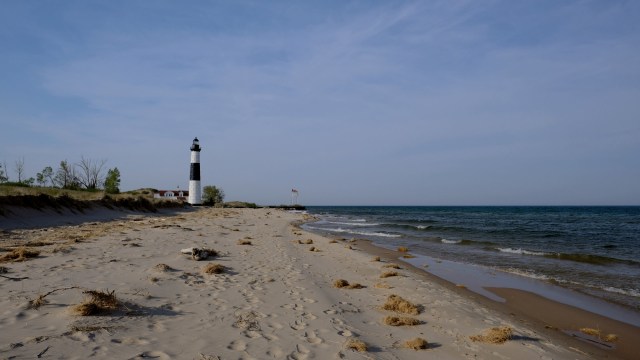Officials take bold action against invaders that could wipe out Great Lakes fish — here's what's happening

As concerns about an influx of invasive carp appearing in the Great Lakes grew earlier this year, The Conversation reported that government officials teamed up to ensure the Great Lakes would remain free of this fish species.
What's happening?
Though invasive carp from Asia were intentionally introduced in the United States in the Southeast, the species escaped from the area they were meant to be in sometime in the 1990s and made their way up the Mississippi River System.
Part of that river system includes the Illinois River, which connects to the Great Lakes. As these invasive carp eat up to 40% of their body weight daily and breed quickly, having them enter the Great Lakes would be disastrous for the ecosystem and those relying on fishing in the area.
Invasive carp aren't suitable for eating, but they could wipe out the fish in the Great Lakes that fishermen catch for food. They can also make it difficult to navigate boats due to their propensity to jump 10 feet in the air when startled.
To prevent this from occurring, government officials from Illinois and Michigan are collaborating to modify the Brandon Road Lock and Dam, aiming to block invasive carp from entering the Great Lakes. While Congress authorized funds for this project in 2020 and 2022, President Trump's day-one freeze on federal funding put the project on hold.
However, Governors JB Pritzker and Gretchen Whitmer approached the administration, each in their own way, to convince it to release the funding needed to complete the project. As a result, the administration ultimately released the funding in May.
Watch now: Does clean energy really cause blackouts?
Why are invasive species concerning?
Invasive species, like the carp, can create widespread problems when introduced into new ecosystems.
The main concern for the Great Lakes region was how much the carp consume and how quickly they proliferate. It wouldn't take long for this invasive species to outcompete native fish species for food and other vital resources, and there were concerns the carp would eat other fish, as well.
Between taking up all available resources and introducing new diseases into local wildlife populations, invasive species can also destroy native ecosystems, create problems with water quality, and alter the soil chemistry of nearby banks.
As such, it's vital to prioritize and protect native species, thus limiting the spread of disease, conserving natural resources, and protecting food supplies.
Should the government be allowed to control how restaurants run their business?
Never
Only in some cases
Only for chain restaurants
Yes in all cases
Click your choice to see results and speak your mind.
What's being done to protect the Great Lakes?
Since the Trump administration released the federal funding, the modifications to the Brandon Road Lock and Dam are back on track, with Gov. Pritzker authorizing Illinois to sign a land-purchase agreement that it had put on pause during the funding freeze. As such, construction can begin on the site to complete the modifications.
Join our free newsletter for good news and useful tips, and don't miss this cool list of easy ways to help yourself while helping the planet.
Officials take bold action against invaders that could wipe out Great Lakes fish — here's what's happening first appeared on The Cool Down.
Welcome to Billionaire Club Co LLC, your gateway to a brand-new social media experience! Sign up today and dive into over 10,000 fresh daily articles and videos curated just for your enjoyment. Enjoy the ad free experience, unlimited content interactions, and get that coveted blue check verification—all for just $1 a month!
Account Frozen
Your account is frozen. You can still view content but cannot interact with it.
Please go to your settings to update your account status.
Open Profile Settings